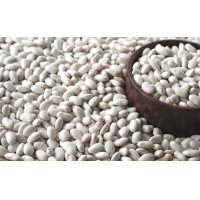İTB Vice Chairman Ercan Korkmaz
The Vice Chairman of İzmir Commodity Exchange Ercan Korkmaz claims that the news implying the prices of bean augments to 15 TRY takes into account the prices of sugar and ispir beans (bean types with high quality and normally higher prices) and is misleading. He insists on that consumers are able to buy the bean according to their quality preferences at prices between 6 – 7.7 TRY. Korkmaz argues that the problems regarding the prices of dried bean stem from the false production and support policies applied for the last 7-8 years.
Korkmaz reports that the plantation area of haricot bean has increased by 43% and production has reduced by 20%, when compared with the data of 2003. Therefore, the farmers have preferred planting alternative crops such as maize and sunflower. “Producers should have been supported at minimum rate 5% of the price.” says Korkmaz.
Assessing the recent conditions of the market, Korkmaz says:
“There are some announcements on the media saying that reduction of the import duty of 20% to 0 is in the agenda of the Cabinet. Reduction of the import duty to 0 means that price of an imported product of 7 TRY will drop by 1.4 TRY. In other words, the price of 15 TRY will decrease to 13.5 TRY. Apparently, it is not a significant reduction. It is widely known that imported bean does not appeal to the taste buds of the Turkish consumers and the imported bean especially from China is prone to have cracks in the shell and to break up. There is no longer a high-quality bean in the world. The volume of production is very limited this season in our primary origin countries of import namely Argentina, Canada, Egypt and Kyrgyzstan. For the time being, there is not enough bean left in these countries to be imported to Türkiye. Only lower quality and savorless beans, so to speak, quasi-bean products can be imported. I think these products are not likely to be consumed by Turkish people. Moreover, it is widely known that the real origin of the products sold in the markets is not always remarked but low quality products are labelled as Turkish product. As a result, Turkish people are alienated from pulse consumption, also with the negative effect of the bean named Japonika on the bean consumption. The dried haricot bean export has recently decreased and import has increased. Therefore, the local prices become more vulnerable to the fluctuations in the world pulses markets. Another reason of the increase in the prices is the reduced volume supplied in the markets in most of the producing countries due to the climate conditions. In order for these global factors not to influence Turkish markets, the markets should have been analyzed very carefully during the harvest period. The increase in the international markets led to increase in the export and this resulted in limited supply in the domestic markets. The export of the bean should have been restricted during this time. This experience explicitly indicates the absence of medium and long term planning in the agricultural markets in Türkiye.”
18.01.2014






